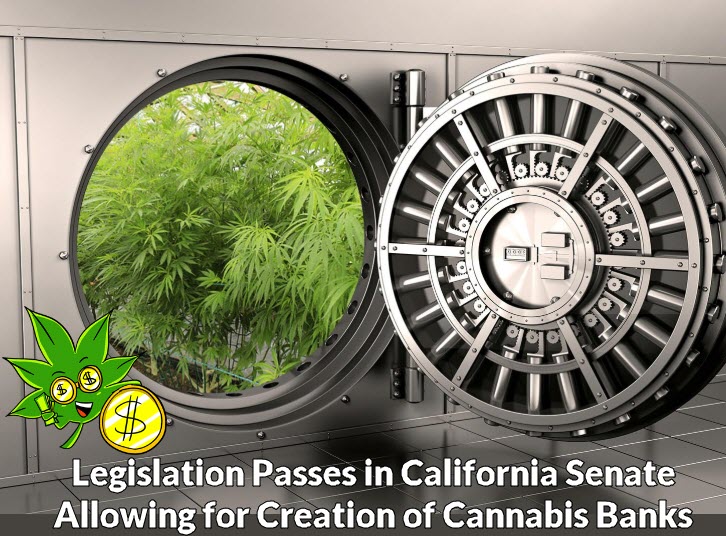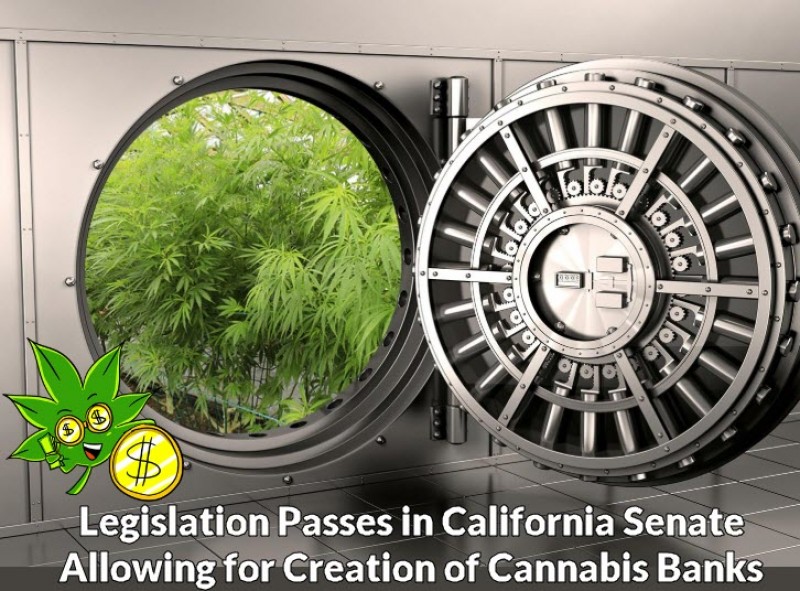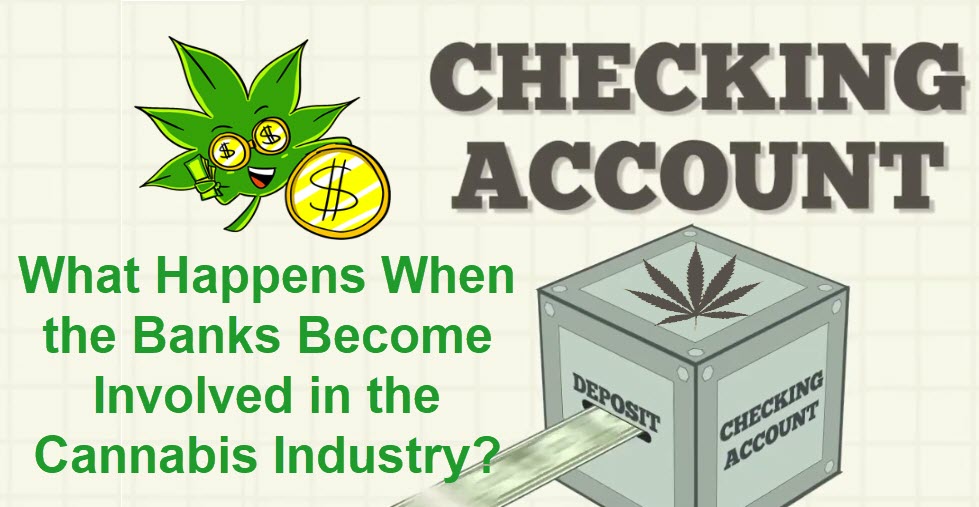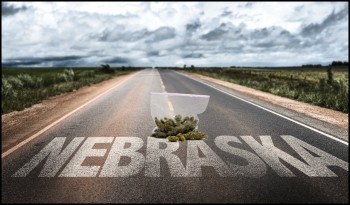Legislation Passes in California Senate Allowing for Creation of Cannabis Banks

Among canna-preneurs, the most common complaint regarding everyday operations has remained the inability to establish accounts at traditional banks and credit unions. Due to conflicting federal and state law, financial institutions continue to refuse service to such companies. As a result, dispensary owners must operate in cash, which raises security concerns as well as complicates matter come tax time.
Recently, the California Senate voted to pass SB 51, which would permit banks and credit unions to apply for a special state license allowing them to conduct financial business with licensed cannabis companies. While the measure raises the question as to how many institutions would participate in cannabis banking, those who do stand to profit considerably. More importantly, if approved, the measure would address the problem of black market cannabis distribution and improve the safety of dispensary workers and delivery drivers.
What SB 51 Would Allow
If SB 51 is signed into law, banks and credit unions will be able to apply for a special charter allowing them to legally do business with licensed cannabis enterprises. The law, dubbed the Cannabis Limited Charter Banking and Credit Union Law, would create the Cannabis Limited Charter Bank and Credit Union Advisory Board. The state Commissioner of Business and Department of Business would oversee administration of the law.
One of the provisions of the law would prohibit institutions with a charter from processing transactions with any other financial company not possessing a similar license. These specially chartered banks and credit unions could issue checks to cannabis businesses which they then could use only for certain purposes such as paying state and local taxes. As one objective of the measure is to streamline the process of filing and collecting taxes, such a system could ensure governments collect every penny owed to them in revenue.
However, the restriction on prohibiting these institutions from conducting business with enterprises lacking a charter could further murky already opaque waters. They may no longer be able to hold up certain contractual obligations they have with other financial entities, opening themselves up to breach claims. It's likely, therefore, that should the measure be signed into law, most banks and credit unions applying for such charters will restrict their clientele to primarily or solely cannabis entities.
While SB 51 would protect financial institutions at the state level, it raises the question of how such banks may face enforcement under federal law. No direct law exists in federal statutes prohibiting banks from doing business with canna-preneurs; however, institutions are required to disclose suspected criminal activity under the Controlled Substances Act, USA Patriot Act, Bank Secrecy Act and the Racketeer Influenced and Corrupt Organizations Act (RICO). As cannabis still enjoys Schedule 1 classification under federal law, meaning it presumably has no medicinal value, the feds could crack down on those organizations failing to disclose the sale and distribution of cannabis.
This would hardly mark the first time state and federal law have conflicted over cannabis. For example, the case of George Duval, Jr. illustrates what can happen should the feds decide to crack down. Duval, a native of Michigan, faces a 10-year prison sentence under federal law for the cultivation of cannabis, even though his farm operated legally under state rules.
Obviously, the federal government cannot throw a bank into prison, even though corporations are considered "humans" under U.S. law. However, they can levy hefty fines against the institution. Furthermore, they could prohibit bank employees from opening checking or savings accounts or taking out certain loans like mortgages due to their complicity in "criminal" financial dealings.
A small handful of banks already offer services to canna-businesses, though only 1 in 30 actually takes the risk. And, because the U.S. banking system is dominated by major entities such as Chase and Wells Fargo, dispensaries operating in more rural areas may not have a bank willing to do business with them for hundreds of miles.
The Black Market and Violence Against Industry Professionals
Given that 30 states allow cannabis use for either recreational or medical purposes — recreational cannabis use became legal in California in 2016 — the failure of the U.S. Congress to protect banks who choose to do business with canna-preneurs makes little sense. Criminals aren't stupid: they know dispensaries operate on a cash basis, and they deliberately target employees of such businesses. As one objective of legalizing cannabis remains reducing crime, especially violent crime, it's well past time the rules change.
Additionally, despite legalization, California continues to experience a roaring black market for cannabis. While most cannabis users prefer buying products from dispensaries because they know exactly what strain and dose they're getting, some hesitate, fearing purchasing pot legally will mean losing other rights, such as their right to buy a gun. Several cases have set precedents saying, in short, you can have cannabis or you can have a pistol, but not both.
Ignoring the absurdity of this for the moment (after all, alcohol use doesn't prohibit someone from buying a firearm despite its known propensity for increasing violence), proponents hope allowing banks to do business with cannabis cultivators would decrease the black market somewhat. As of right now, law enforcement has little control when it comes to tracking suspected criminals through their financial records. Supporters of SB 15 hope the measure will open new windows into who is operating illegally.
The most shocking aspect of the conflicting current federal law is while dispensaries must file federal income taxes, doing business on a cash-only basis likely increases under-reporting of income frequently. Not to mention, states already use revenue from the cannabis industry for anything from helping the homeless to improving schools. That the feds continue to miss out on additional revenue from the cannabis industry boggles the mind.
The Future of Banking and Cannabis
It seems as if the tide has moved slowly but inexorably toward the full legalization of cannabis. Hopefully, should California SB 15 be signed into law, the act will prompt the U.S. Congress to address the conflict between federal and state law. Until then, canna-preneurs can pray banks and credit unions take advantage of the law, if passed, to bring the cannabis industry out of the Dark Ages so they can begin conducting business the way any other enterprise does.
NEED MARIJUANA BANKS STUFF, READ THESE..
SAFE BANKING ACT LEADS STOCK MARKET BUBBLE, CLICK HERE.








